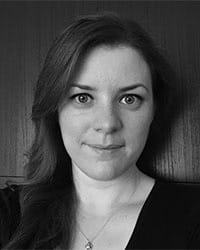One concern we often hear from people considering a move into pharmaceutical or medical device manufacturing is not knowing how difficult will it be to get a job.
Of course answering that is very difficult since it will depend on a whole host of factors – your previous experience, how good your job hunting skills are, what your local industry looks like, etc.
But what we can do is point out some of the biggest challenges faced by previous trainees so you can consider them fully.
One concern we often hear from people considering a move into pharmaceutical or medical device manufacturing is not knowing how difficult will it be to get a job.
Of course answering that is very difficult since it will depend on a whole host of factors – your previous experience, how good your job hunting skills are, what your local industry looks like, etc.
But what we can do is point out some of the biggest challenges faced by previous trainees so you can consider them fully.
Knowing Where To Start
Job hunting can be extremely different depending on the industry you’re in. If you’re coming into pharmaceutical or medical device manufacturing from another industry, one of the biggest challenges is knowing where to start.
We address this by having a bank of resources available to all our students that talk through the particulars of job hunting in this industry.
This bank of resources includes articles, checklists, and templates on a whole host of subjects including CV writing, speculative applications, interviews preparation, and networking.
You can choose whether to just dip into specific pieces or whether you want to follow our template that lays out this learning in a logical and organized way.
Check out our Job Hunt Resource Centres for Ireland, the UK, and the USA.
You can also find more information about specific programmes of help in our article “What Practical Help Will You Give Me To Find A Job?”
Knowing WHEN To Start
Many people assume that they study, get their certification and then they can start to job hunt. Our trainees actually have the knowledge they need to interview and impress employers from quite an early point in their programme of studies.
You can and should be job hunting while you study. It is not uncommon for our trainees to secure employment while still working on their courses. We give you all the resources to be able to successfully complete your course and find employment – it’s up to you to put in the hours to do it.
Finding Time
Organisational skills are extremely important, particularly for someone who is studying online. As well as scheduling time and creating a routine around your coursework, you should also create time in your weekly routine for job hunting.
We recommend allocating 5-10 hours per week. This may sound a lot but the more you do, the quicker you’ll be in employment.
And it’s not just about busying yourself do “job hunting things”, you should look to take a highly structured approach.
We have an open-access template that walks you step by step through your job, showing what needs to be done weekly. Make a start by reading this article that talks through the template and how it works.
Competition In The Job Market
Pharmaceutical and medical device manufacturing jobs pay well. In Ireland, it is estimated that they pay 30% more than comparable jobs in other industries.
In the USA, average total compensation for biopharma employees is $110,490. The average across all US workers (in all industries) is $54,455.
For this reason, jobs are highly sought after and there is definitely competition in the job market.
That is why we spend so much time creating great resources and helping you to write a great CV, learn to adapt to each job application and consider your interview technique.
You have to be prepared to work hard, but we’ll be giving you all the tools you need to succeed.
And you have to be resilient. This isn’t likely to be a job hunt where you apply for one job, get an interview and then get a job offer.
This is more likely to involve dozens of job applications and multiple interviews before landing your first job in this industry.
Knowing that as you go in should help keep your motivation from lapsing as your job hunt progresses.
Lack Of Industry Experience
Unsurprisingly, since our courses are specifically designed for people making a mid-career change into this industry, one of the biggest challenges they face is lack of industry experience.
Again, through various resources, we’ll discuss how to deal with this. Essentially, it’s all about how you frame the experience you do have.
You should keep in mind that our courses will be giving you all the technical and industry-specific knowledge that you need to enter the workplace.
As well as that, all our additional supporting job hunt resources are written with a candidate who is new to the industry in mind. We know this is a challenge you could face and we help you prepare.
Confidence
This could be the biggest challenge facing candidates who are reskilling into any new industry.
While we often hear of not knowing where to start, there being a lot of competition and difficulty due to lack of experience, what it might arguably all come down to, is lack of confidence.
We can say this because we know that it’s not uncommon for trainees on our programmes to secure their first job in this industry before they even finish their course. If they can do it, there’s no reason you can’t.
You will always have a course coordinator you can call or email who will be there to support you through this whole process, you’re never going to be alone as you make this mid-career change.
But one thing is for sure, you absolutely have to believe that you can be successful before you can convince an employer to think the same.
Other Useful Articles
About the Author
Claire Wilson
Content Marketing and Career Coaching
Claire runs GetReskilled’s Advanced Career Coaching Programme – our specially devised job hunting course that helps our trainees take that final step into employment by leading them through the job hunting process. She is extremely enthusiastic about helping people reach their final goal of employment in their new career path.
Claire has a BSc (Hons) in Medical Biology from Edinburgh University and spent 7 years working in the pharmaceutical and medical device industries.


Post Your Comments Below